
wiredON Development Interviews
wiredON Development
A collection of knowledge and insights from brilliant clinicians in the field of neuromotor development and childhood disability to inspire, motivate and provide you with the tools to help the amazing kids you treat develop their potential www.wiredondevelopment.com
- 1 hour 16 minutesHippotherapy for Physical and Occupational Therapists in Pediatrics
This was such a fun interview for me to do but be warned, once you’ve listened to Jane and Susie explaining the benefits and mechanism of equine assisted therapy, you are going to want to go find yourself a stable with a few horses and get trained in hippotherapy if you’re not already. . I was genuinely blown away by how the the horse can be used to impact motor learning, and how as therapists we can integrate the whole sensory motor experience into our therapeutic goals. This interview will take you on a fascinating journey into hippotherapy - enjoy the ride.
13 December 2024, 12:00 am - 1 hour 26 minutesDystonia and complex disabilities in childhood development with Karen Kanga
From philosophy student and activist to pioneer in early childhood intervention approaches for therapists, Karen Kangas takes us on a journey of developing clinical excellence. She is an occupational therapists with over 50 years of experience, specializing in pediatrics, seating, and augmentative and alternative communication (AAC).
She has particular knowledge and expertise in working with children with significant disabilities, particularly those with dystonia and dystonic cerebral palsy.
Karen beautifully bridges the gap between ‘old school’ hands on approaches and a more contemporary hands-off focus on participation and real-life activities and engagement.
We cover seating and positioning, standing, walking and appropriate equipment use, developing clinical skills, the magic of the barrier vest and understanding movement patterns.
You'll find links to everything we discussed at https://www.wiredondevelopment.com
Enjoy!
29 October 2024, 12:00 am - 1 hour 9 minutesThe Real State-of-The-Evidence in Pediatric Rehabilitation with James Sulzer
James Sultzer is an academic neurorehabilitation engineer and a father to a child with a significant brain injury. This conversation is a raw look at the real state of the evidene in pediatric neurodisability from the someone who is living through the reality of how it supports families to make incredibly difficult decisions as they seek out the best care for their kids. We move from discussing the value of goal setting and home programs all the way to trying to uncover the fraud and the pseudoscience that parents are navigating everyday. This is a profoundly important conversation that is a must listen for everyone working with families who have children with disabilities. I know you'll get a lot out of it. Enjoy!
For resources mentioned jump to https://www.wiredondevelopment.com
5 August 2024, 5:30 am - 1 hour 21 minutesAn eye opening journey into neuroplasticity with Dr Susan Barry for pediatric OTs and PTs
When it comes to understanding how the work that we try to do every day in the clinic actually works, this interview with Dr Susan Barry may be one of the most eye-opening interviews I have done so far - excuse the pun. Dr Barry is a a Professor Emeritus of Biological Sciences, Professor Emeritus of Neuroscience and Behavior and (as she calls herself) a recovered Strabismic. Her story of fixing her gaze which started at age 48 gives us unmatched insight how neuroplasticity can be harnessed in every day therapy to drive recovery. WE cover so many topics that are near and dear to my beating therapy heart, and from the value of clinical wisdom and the cautionary tales of over interpreting published research to the importance of not being distracted by the obvious problems you see, but rather understanding the reason behind why you are seeing them. There’s so many nuggets to take away from this interview, you are going to love it - enjoy!
2 July 2024, 8:00 am - 1 hour 14 minutesChild-Led Therapy with Kelsie Olds for Occupational and Physical Therapists
This interview with the OccuPLAYtional Therapist, Kelsie Olds, is an absolute treat. We cover the realities, practicalities and benefits of child-led therapy, the integration of play in therapeutic practices, push-in vs pull out services, balancing the conflicts that arise from staying true to your core values as a therapist with meeting your service requirements and so much more
For links and resources, visit https://www.wiredondevelopment.com
04:45 A uniquely rich learning environment
13:32 Regcognising and addressing underlying difficultes
22:46 Finding the best learning opportunities
27:44 Whose actually my client?
31:26 The magic of a trust and values based approach
37:34 Navigating School Systems and Advocating for Child-Led Therapy
>> 39:13 Be Informed
>> 41:20 Value the team
>> 42:21 Keeping the child at the center
44:38 Push in vs Pull out
50:53 Gaining Respect and Buy-In from Teachers
52:58 Understanding motor skill levels through play vs standardized testing
59:32 Stop asking questions
01:04:27 Everybody is unique and we are all the same
01:08:54 Neurodiverse Conversations and Activism
01:11:06 Interoception
8 May 2024, 4:00 am - 1 hour 21 minutesSpecializing in Neudodisability: Bobath Therapy for Pediatric PTs and OTs
More than a decade ago, I asked a question which finally gets answered today. The question was
'Why, despite the poor evidence, do intelligent, scientifically minded, educated and experienced therapists still value it?
Or do they?'
Prof Margaret Mayston exemplifies the intelligent, scientifically minded, educated and experienced therapist.
She trained initially as a physiotherapist in Melbourne, Australia, and then specialised in childhood neurodisability at the Bobath centre in London before pivoting to a career in science by the completion of an MSc in Human & Applied Physiology (Kings College London), a PhD in neurophysiology, and a 3-year Wellcome Trust funded postdoctoral fellowship, both at University College London (UCL).
She has combined her clinical and academic careers, and is currently a Professor (teaching) in the Division of Biosciences at UCL teaching neuroscience and general physiology on undergraduate programmes. She also gives sessions on Typical Child Development for the MSc Advanced Pediatrics (UCL) and as a Senior Bobath Tutor (pediatrics) she also teaches on Foundation courses globally and is involved in tutor training.
We cover so much more than Bobath therapy in this interview, from basic physiology to philosophy and everything in between, but essentially this interview explores why the call to deimplement Bobath NDT is so misguided and captures why intelligent, scientifically minded, educated and experienced therapist think all over the world think the call to deipmlement Bobath NDT is not only ignorant and misguided, but detrimental to our profession as a whole, and a disservice to the kids and families that we are tasked with caring for.
Check out the resouces and article discussed in this paper https://www.wiredondevelopment.com
26 March 2024, 9:12 pm - 1 hour 2 minutesInteroception in neurodevelopment for Occupational and Physical Therapists
Interoception is a key sense that has been widely studied for decades but is only now making its way into clinical applications and Kelly Mahler is an amazing occupational therapists who is leading the way both clinically and academically in understanding the role of this key sense for occupational and physical therapists working in neurodevelopment. Don't miss this practice changing conversation on how we should think about interoception in our clinical work. It's jam packed with practical ideas and actions that we can take back to the clinic right now.
I know you’re going to love it!
Enjoy!
23 January 2024, 8:00 am - 1 hour 13 minutesThe Evidence and the Practice of Bobath / NDT with Julie Vaughan-Graham, PT, PhD
A passionate and engaging conversation with Dr Julie Vaughan-Graham, PT, PhD, Advanced IBITA Instructor, Adjunct Clinical Professor at McMaster University and University of Toronto, Canada and Founder of Physio-Logic and iNeuroRehab . Julie shares insights from her research on the Bobath concept, and the importance of postural control, selective movement and movement variability and efficiency. We discuss clinical reasoning, the challenges of research, and the future of physio/ physical therapy. If you've ever had questions about the state of the evidence in this area of practice, you're going to find this conversation enlightening. You can find all the resources mentioned in the discussion at https://www.wiredondevelopment.com
20 November 2023, 2:00 pm - 1 hour 12 minutesEmpowering Conversations: A Deep Dive into Occupational Peformance Coaching for Pediatric Occupational and Physical Therapists
In the evolving landscape of pediatric neurorehabilitation, the emergence of therapeutic coaching has marked a paradigm shift. This approach, which marries therapeutic principles with the empowering dynamics of coaching, is designed to effect profound, tangible changes in the lives of children and their families. Occupational Performance Coaching (OPC) is a distinctive coaching methodology that positions families and goal setting at the heart of therapeutic interventions.
The mind behind this transformative approach is Dr. Fiona Graham (Fi), an occupational therapist who has developed, taught, and researched OPC. Her work presents a mix of deep expertise and a passion for supporting children's success in everyday life.
If you've ever wondered about the potential of therapeutic coaching in pediatric neurorehabilitation, this interview is a must-listen. Dive into this conversation with me as I explore the nuances, challenges, and benefits of an evidence based approach to therapeutic conversations, coaching and therapy in neurodisability.
14 September 2023, 8:00 am - 1 hour 38 minutesSpinal Stimulation in Spina Bifida with Gerti Motavalli and Dr Gad Alon
Gerti Motavalli and Dr. Alon share their insights into the work they have been doing with non-invasive spinal stimulation that is changing the lives of many children with Spina Bifida. We dig into both the theoretical and practical application of this this protocol, as well as how it compares to other electrical stimulation approaches in pediatrics.
With decades of experience and a background spanning multiple countries, Gerti and Dr. Alon bring a wealth of knowledge along and practical experiences to this fascinating topic.
Grab more resources at https://www.wiredondevelopment.com and enjoy the learning!
24 June 2023, 1:45 pm - 58 minutes 50 secondsTheraTogs Research for Pediatric Occupational and Physical Therapists
There are many brilliant and passionate therapists in our world of neuromotor development, but few come close to Beverly Cusick in their ability to shape the lives of the children we see. I mean that both at the most pragmatic level where Billi’s teaching of serial casting and orthotic prescription has literally shaped thousands of feet for the better, and her brilliance in developing TheraTogs has contributed to the improved alignment and development of a thousand more little bodies. But I also mean this as a more theoretical level where Billi relentless drive to make sense of the science as it relates to growing bodies and her pedantic attention to detail has given us the most impactful tools in our therapy toolbox to really understand, measure and monitor the work that we do reliably, repeatably and meaningfully. For me this is the essence of evidence based practice, especially in our world of complex, multi-faceted, ever changing little bodies.
For the longest time, the research into the effectiveness of TheraTogs has not matched the interest and value that therapist who use it properly see in their day to day practice. Recently however, a few papers have been published that are starting to get closer to capturing these therapeutic benefits that clinicians’ have been excited about for years. I sat down with Billi to discuss why previous research has failed to capture our experiences and what’s different about this new research that may change the narrative - because evidence based practice shouldn’t be about quoting publications, but critically appraising the research and demanding that it reflects the true nature of the work we do.
for resources and more discussed in this interview visit https://www.wiredondevelopment.com
2 June 2023, 12:06 am - More Episodes? Get the App
Your feedback is valuable to us. Should you encounter any bugs, glitches, lack of functionality or other problems, please email us on [email protected] or join Moon.FM Telegram Group where you can talk directly to the dev team who are happy to answer any queries.
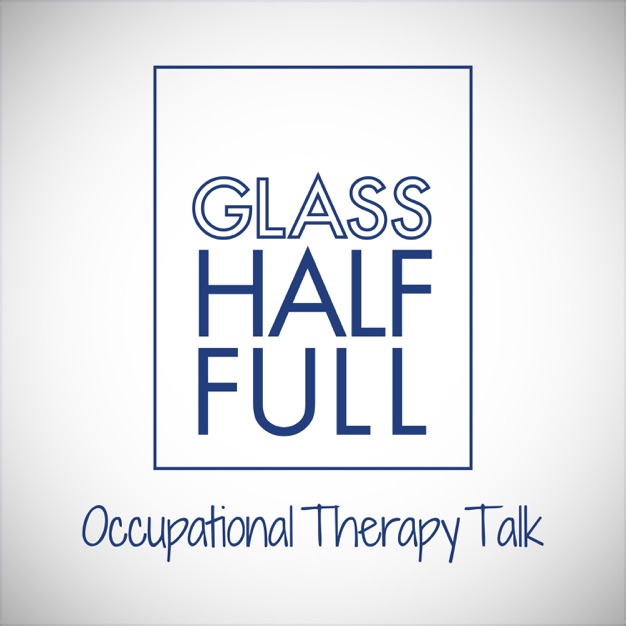 Glass Half Full
Glass Half Full
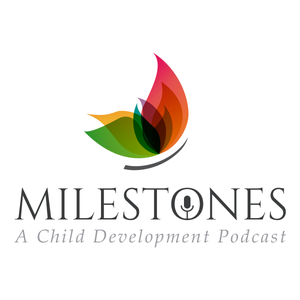 Milestones
Milestones
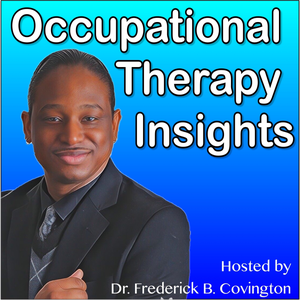 Occupational Therapy Insights
Occupational Therapy Insights
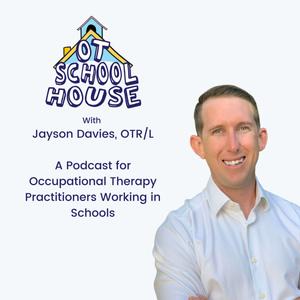 The OT Schoolhouse Podcast for School-Based OT Practitioners
The OT Schoolhouse Podcast for School-Based OT Practitioners
 Pediatric Physical Therapy - Pediatric Physical Therapy Podcast
Pediatric Physical Therapy - Pediatric Physical Therapy Podcast
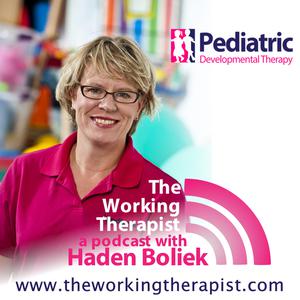 The Working Therapist: Providing Helpful Ideas for Pediatric Speech, Occupational and Physical Therapy
The Working Therapist: Providing Helpful Ideas for Pediatric Speech, Occupational and Physical Therapy